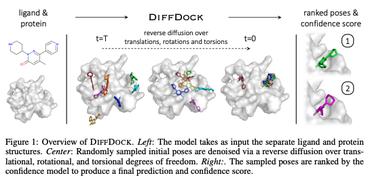Search Results for author: Yusong Wang
Found 8 papers, 2 papers with code
Active Learning with Task Adaptation Pre-training for Speech Emotion Recognition
1 code implementation • 1 May 2024 • Dongyuan Li, Ying Zhang, Yusong Wang, Funakoshi Kataro, Manabu Okumura
To address these issues, we propose an active learning (AL)-based fine-tuning framework for SER, called \textsc{After}, that leverages task adaptation pre-training (TAPT) and AL methods to enhance performance and efficiency.
F$^3$low: Frame-to-Frame Coarse-grained Molecular Dynamics with SE(3) Guided Flow Matching
no code implementations • 1 May 2024 • Shaoning Li, Yusong Wang, Mingyu Li, Jian Zhang, Bin Shao, Nanning Zheng, Jian Tang
Molecular dynamics (MD) is a crucial technique for simulating biological systems, enabling the exploration of their dynamic nature and fostering an understanding of their functions and properties.
Joyful: Joint Modality Fusion and Graph Contrastive Learning for Multimodal Emotion Recognition
no code implementations • 18 Nov 2023 • Dongyuan Li, Yusong Wang, Kotaro Funakoshi, Manabu Okumura
In this paper, we propose a method for joint modality fusion and graph contrastive learning for multimodal emotion recognition (Joyful), where multimodality fusion, contrastive learning, and emotion recognition are jointly optimized.
Active Learning Based Fine-Tuning Framework for Speech Emotion Recognition
no code implementations • 30 Sep 2023 • Dongyuan Li, Yusong Wang, Kotaro Funakoshi, Manabu Okumura
However, existing SER methods ignore the information gap between the pre-training speech recognition task and the downstream SER task, leading to sub-optimal performance.
An ensemble of VisNet, Transformer-M, and pretraining models for molecular property prediction in OGB Large-Scale Challenge @ NeurIPS 2022
no code implementations • 23 Nov 2022 • Yusong Wang, Shaoning Li, Zun Wang, Xinheng He, Bin Shao, Tie-Yan Liu, Tong Wang
In the technical report, we provide our solution for OGB-LSC 2022 Graph Regression Task.
Direct Molecular Conformation Generation
1 code implementation • 3 Feb 2022 • Jinhua Zhu, Yingce Xia, Chang Liu, Lijun Wu, Shufang Xie, Yusong Wang, Tong Wang, Tao Qin, Wengang Zhou, Houqiang Li, Haiguang Liu, Tie-Yan Liu
Molecular conformation generation aims to generate three-dimensional coordinates of all the atoms in a molecule and is an important task in bioinformatics and pharmacology.
Improved Drug-target Interaction Prediction with Intermolecular Graph Transformer
no code implementations • 14 Oct 2021 • Siyuan Liu, Yusong Wang, Tong Wang, Yifan Deng, Liang He, Bin Shao, Jian Yin, Nanning Zheng, Tie-Yan Liu
The identification of active binding drugs for target proteins (termed as drug-target interaction prediction) is the key challenge in virtual screening, which plays an essential role in drug discovery.
Exploring the Regulatory Function of the N-terminal Domain of SARS-CoV-2 Spike Protein Through Molecular Dynamics Simulation
no code implementations • 6 Jan 2021 • Yao Li, Tong Wang, Juanrong Zhang, Bin Shao, Haipeng Gong, Yusong Wang, Siyuan Liu, Tie-Yan Liu
We performed molecular dynamics simulation on the S protein with a focus on the function of its N-terminal domains (NTDs).



